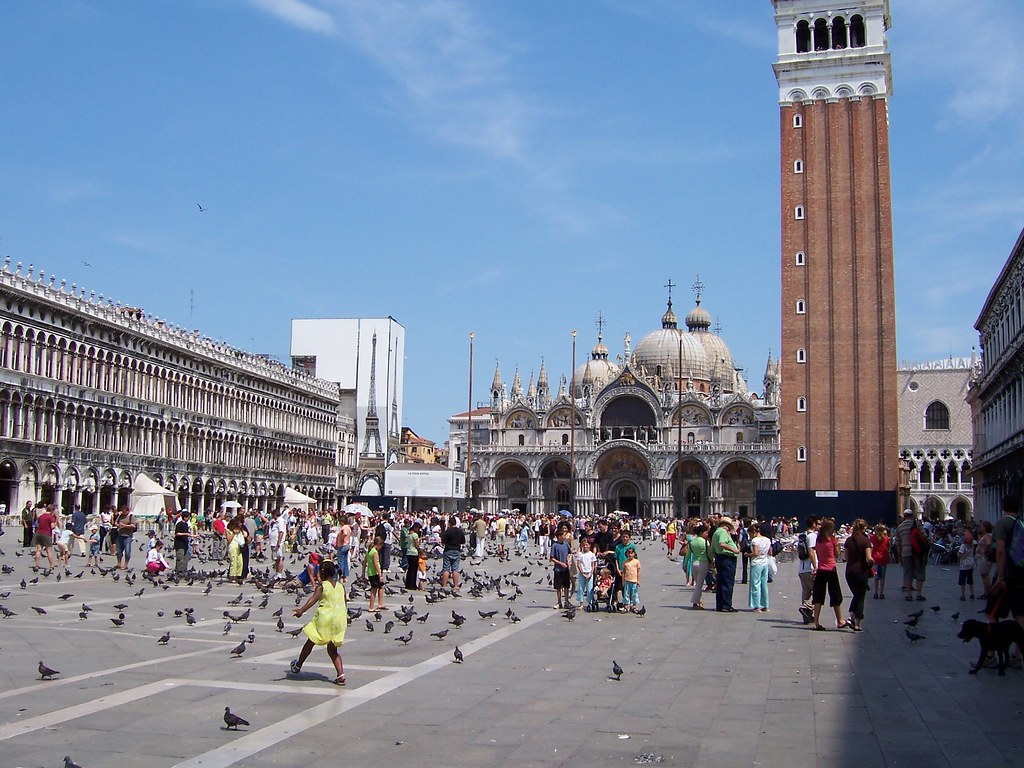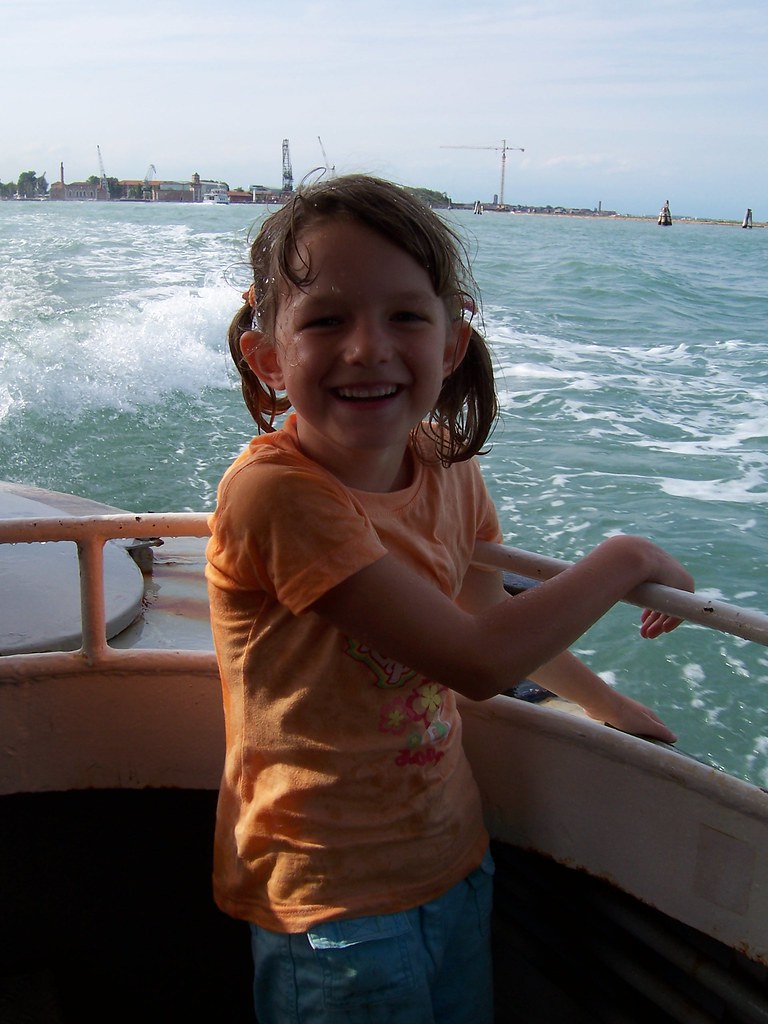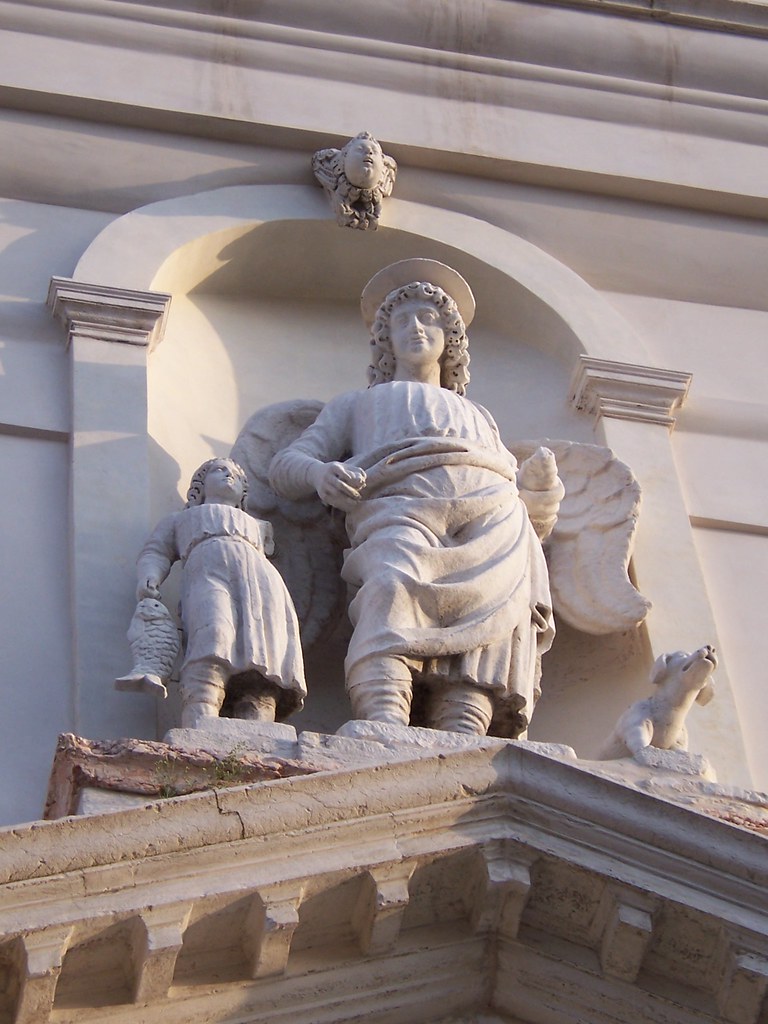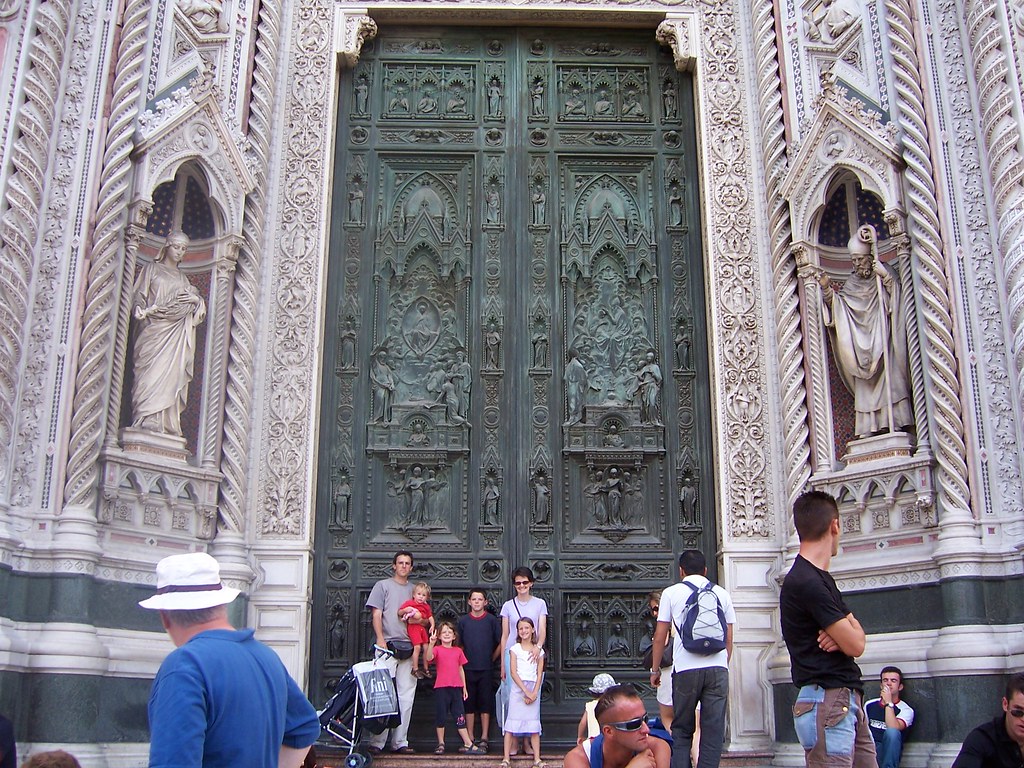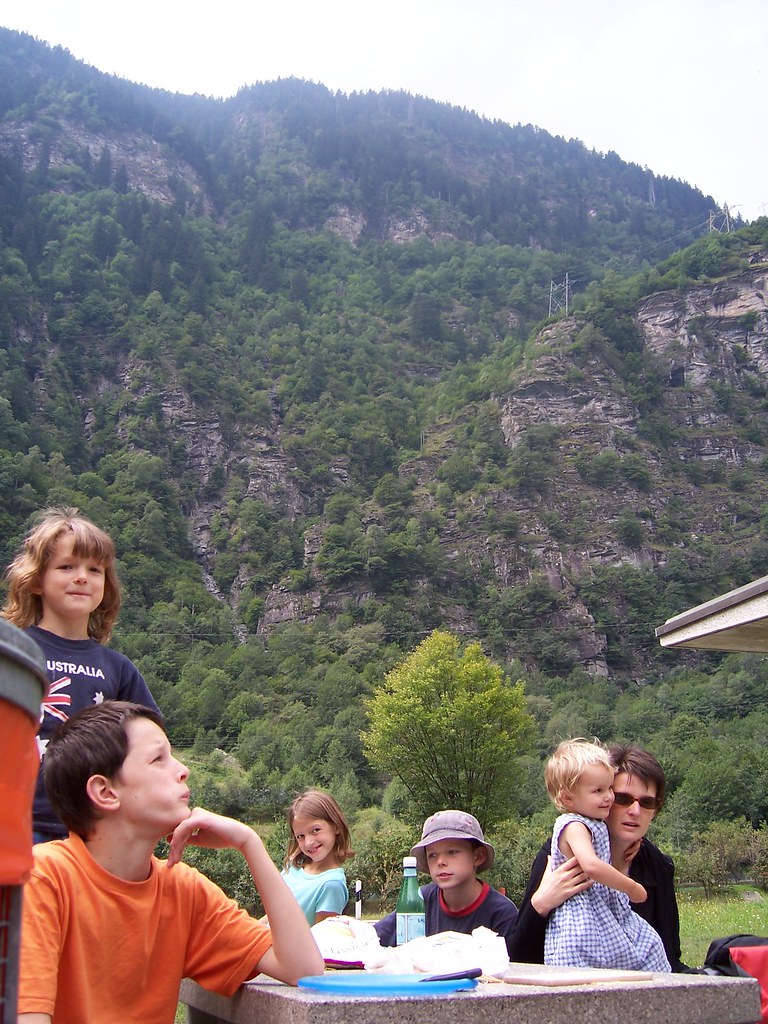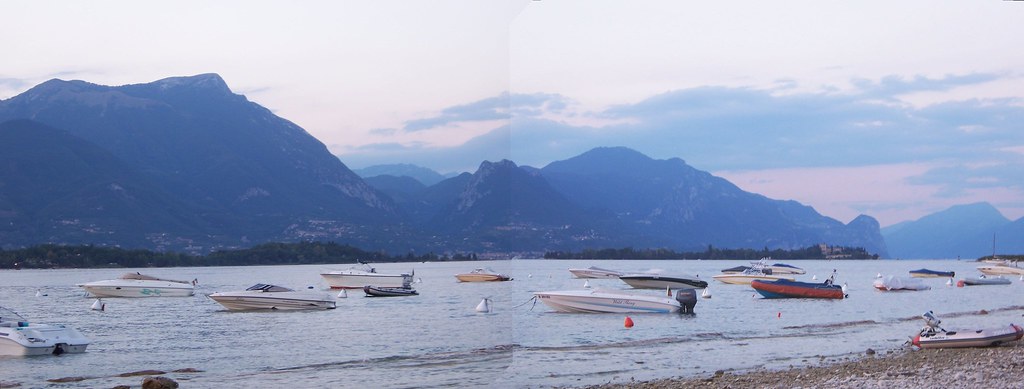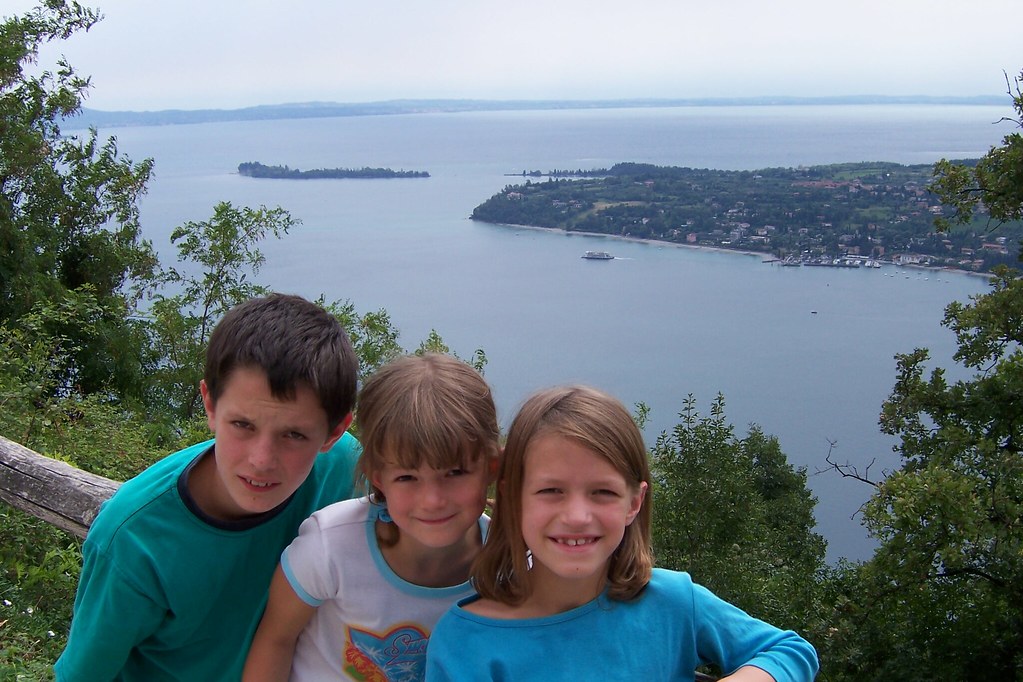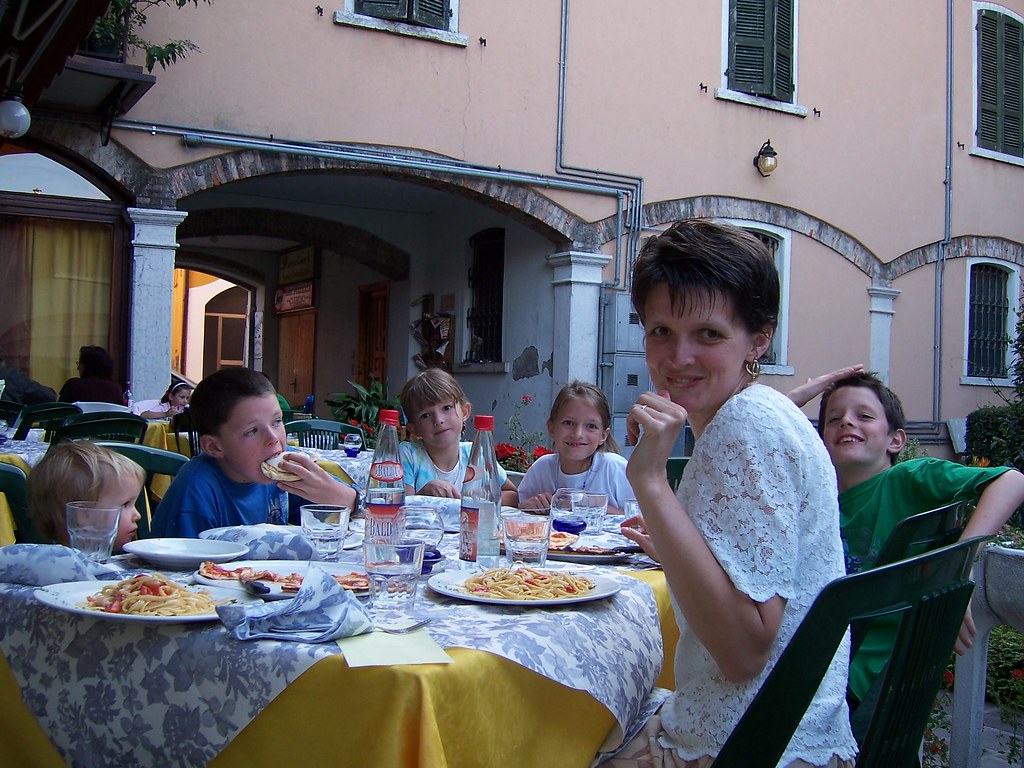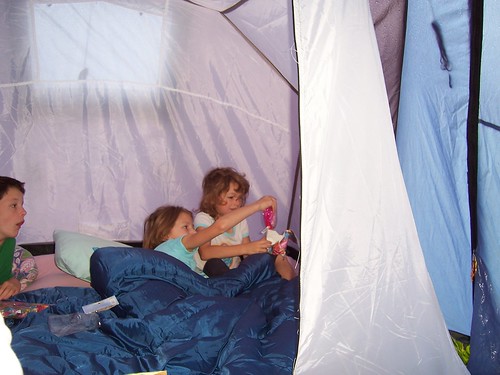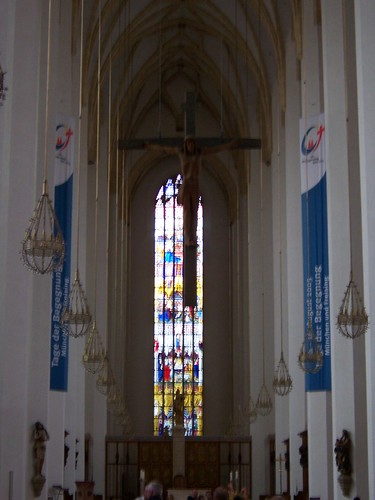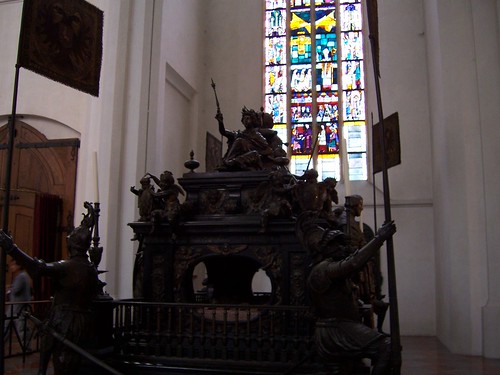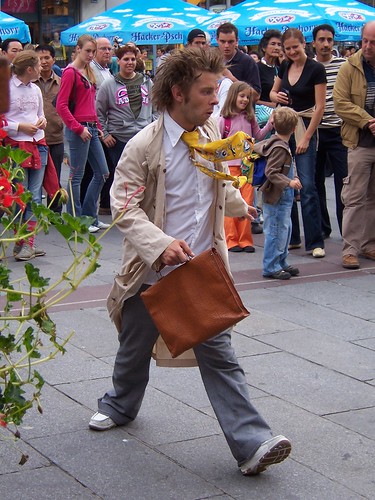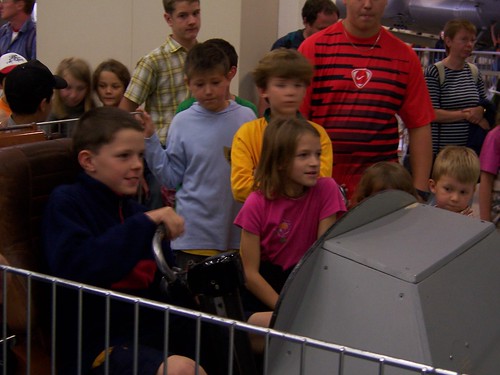Mara
Mara was quite keen to come to Germany and, even though she has had her own challenges, seems to be generally happy about life. Her biggest trial to date seems to have been the teaching style and personality of her teacher. She is still enjoying school but, with the language and cultural barrier, initially found it difficult to understand the requests of her teacher. This, along with the early starts — their bus leaves around 7:45am and Mara, like her father, is not a morning person — made for a few weeks of personal adjustment. She seems to be pretty much back on top of things again, learning the language quite quickly.
Her teacher likes the children to memorise poetry and Mara has done quite well at this, despite not being able to understand the first few. Here (wav file, 691kB, higher quality) or here (mp3 file, 63kB, lower quality) is a recording of the first one she did, receiving many compliments for her pronunciation.
She has made good friends with a local girl in the village who lives with her three siblings on a small farm. They have horses (the girl’s father trains them) and a lovely yard with various swings, see-saws etc. and consequently it’s a popular place for our children to visit.
Ariana
There is a kindergarten in the village — the group is known as the “Wild 13” from a German children’s book — which Ari is attending until the summer holidays. One of her teachers speaks a little English but Ari, in general, doesn’t need to know a lot of German to get by. She is picking it up reasonably quickly and is now becoming very interested in reading and writing. Her progress in these skills has been a little hampered by her insistence that she learn it on her terms, which, however, do not always correspond well with reality.
German children generally start primary (elementary) school at 6 years of age but it’s certainly not uncommon for them to also wait until they are 7 before beginning. It’s quite a flexible approach and they seem to be keen to make sure that children are mature and adjusted enough to be able to make a successful transition. Ariana, of course, has been chomping at the bit to start school since the middle of last year. She was a little put out when informed that she would still be in ‘pre-school’ (known more correctly as ‘kindergarten’ here) until at least August, when her friends in Australia started ‘proper’ school in February. So it wasn’t really an option to wait another school year before sending her. In addition, if we return to Australia in September 2006 she will at least have one year of schooling under her belt. Although German children are at kindergarten until they are 7, very little in the way of structured learning goes on here. It’s very much like pre-school with plenty of finger-painting, recreational play, stories and singing. However, once they hit primary school (the Grundschule) it progresses quite rapidly and they are down to business.
In one of Gaynor’s previous posts she mentioned briefly a trip to Brückenkopf Park in Jülich. Among the attractions there is a small zoo. When we came across a peacock, Gaynor, in a conversational tone, asked the bird to present his tail feathers. When the peacock refused the request, Ariana said to Gaynor, “Mum of course the bird can’t understand you. It’s a German bird!”
Bryna
Bryna has taken the move to Germany in her stride. Though we were concerned about travelling with her from Brisbane to Amsterdam to here (a total transit time of about 32 hours door-to-door), she journeyed exceptionally well, sleeping almost the entire stretch from Singapore to Amsterdam.
She still isn’t saying much — having about equal vocabularies of German and English, a dozen words in each — but who needs to with four siblings at your beck and call, a very accurate pointing finger and an insistent tone. She loves to be outside, taking rides in the baby trailer on Elijah’s bike and walking along the neighbour’s low wall.
